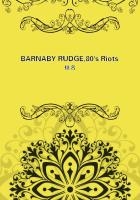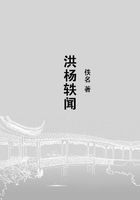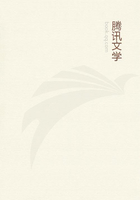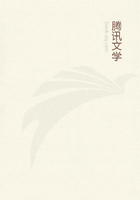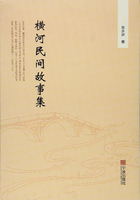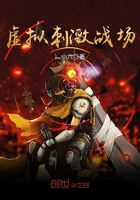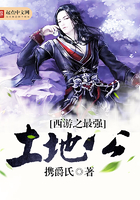Casalis proceeds: "No one would dare to eat the flesh or wear the skin of the animal whose name he bears. If the animal be dangerous--the lion, for example--people only kill him after offering every apology and asking his pardon. Purification must follow such a sacrifice." Casalis was much struck with the resemblance between these practices and the similar customs of North American races. Livingstone's account on the whole corroborates that of Casalis, though he says the Batau (tribe of the lion) no longer exists. "They use the word bina 'to dance,' in reference to the custom of thus naming themselves, so that when you wish to ascertain what tribe they belong to, you say, 'What do you dance?' It would seem as if this had been part of the worship of old." The mythological and religious knowledge of the Bushmen is still imparted in dances; and when a man is ignorant of some myth he will say, "I do not dance that dance," meaning that he does not belong to the guild which preserves that particular "sacred chapter".
Missionary Travels (1857), p. 13.
Orpen, Cape Monthly Magazine, 1872.
Casalis noticed the similarity between South African and Red Indian opinion about kinship with vegetables and beasts. The difficulty in treating the Red Indian belief is chiefly found in the abundance of the evidence. Perhaps the first person who ever used the word "totemism," or, as he spells it, "totamism," was (as we said) Mr.
Long, an interpreter among the Chippeways, who published his Voyages in 1791. Long was not wholly ignorant of the languages, as it was his business to speak them, and he was an adopted Indian.
The ceremony of adoption was painful, beginning with a feast of dog's flesh, followed by a Turkish bath and a prolonged process of tattooing. According to Long, "The totam, they conceive, assumes the form of some beast or other, and therefore they never kill, hurt, or eat the animal whose form they think this totam bears". One man was filled with religious apprehensions, and gave himself up to the gloomy belief of Bunyan and Cowper, that he had committed the unpardonable sin, because he dreamed he had killed his totem, a bear. This is only one example, like the refusal of the Osages to kill the beavers, with which they count cousins,
that the Red Man's belief is an actual creed, and does influence his conduct.
Long, pp. 46-49.
Ibid., p. 86.
Ibid., p. 87.
Schoolcraft, i. 319.
As in Australia, the belief in common kin with beasts is most clearly proved by the construction of Red Indian society. The "totemistic" stage of thought and manners prevails. Thus Charlevoix says, "Plusieurs nations ont chacune trois familles ou tribus principales, AUSSI ANCIENNES, A CE QU'IL PAROIT, QUE LEURORIGINE. Chaque tribu porte le nom d'un animal, et la nation entiere a aussi le sien, dont elle prend le nom, et dont la figure est sa marque, ou, se l'on veut, ses armoiries, on ne signe point autrement les traites qu'en traceant ces figures." Among the animal totems Charlevoix notices porcupine, bear, wolf and turtle.
The armoiries, the totemistic heraldry of the peoples of Virginia, greatly interested a heraldic ancestor of Gibbon the historian,
who settled in the colony. According to Schoolcraft, the totem or family badge, of a dead warrior is drawn in a reverse position on his grave-post. In the same way the leopards of England are drawn reversed on the shield of an English king opposite the mention of his death in old monkish chronicles. As a general rule, persons bearing the same totem in America cannot intermarry. "The union must be between various totems." Moreover, as in the case of the Australians, "the descent of the chief is in the female line". We thus find among the Red Men precisely the same totemistic regulations as among the Aborigines of Australia.
Like the Australians, the Red Men "never" (perhaps we should read "hardly ever") eat their totems. Totemists, in short, spare the beasts that are their own kith and kin. To avoid multiplying details which all corroborate each other, it may suffice to refer to Schoolcraft for totemism among the Iowas and the Pueblos;
for the Iroquois, to Lafitau, a missionary of the early part of the eighteenth century. Lafitau was perhaps the first writer who ever explained certain features in Greek and other ancient myths and practices as survivals from totemism. The Chimera, a composite creature, lion, goat and serpent, might represent, Lafitau thought, a league of three totem tribes, just as wolf, bear and turtle represented the Iroquois League.
Histoire de la France-Nouvelle, iii. 266.
Introductio ad Latinam Blasoniam, by John Gibbon, Blue Mantle, London, 1682. "The dancers, were painted some party per pale, gul and sab, some party per fesse of the same colours;" whence Gibbon concluded "that heraldry was ingrafted naturally into the sense of the humane race".
Vol. i. p. 356.
Schoolcraft, v. 73.
Ibid., iii. 268.
Ibid., iv. 86.
The martyred Pere Rasles, again, writing in 1723, says that one stock of the Outaonaks claims descent from a hare ("the great hare was a man of prodigious size"), while another stock derive their lineage from the carp, and a third descends from a bear; yet they do not scruple, after certain expiatory rites, to eat bear's flesh.
Other North American examples are the Kutchin, who have always possessed the system of totems.
Kip's Jesuits in America i. 33.
Dall's Alaska, pp. 196-198.

